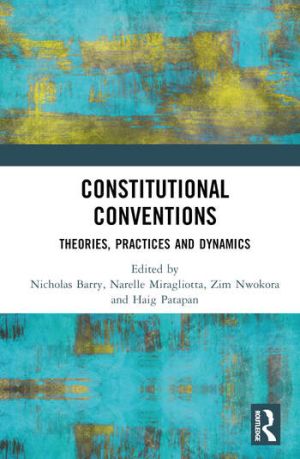
This book analyses constitutional conventions as a powerful but largely neglected framework for studying the law and politics of constitutions.
Constitutional conventions are the unwritten rules that inform and circumscribe the political behaviour of individuals, organisations, and a political system. They are as important as the formal legal rules that define written constitutions and shape modern states; yet, unlike formal written rules, conventions have received only limited scholarly attention. This book considers conventions as a lens to theorise and to analyse the institutional dynamics of contemporary constitutions. Interrogating constitutional conventions in a wide variety of contexts – including in Westminster parliamentary systems, in presidential systems and in non-democratic regimes – the book offers new perspectives for understanding diverse aspects of constitutional politics: such as the capacity of conventions to constrain populists, how conventions influence constitutional transformation, how they reflect and reshape core democratic values such as citizenship and constitutional identity, and what they reveal about the character of authoritarian regimes. The book thus demonstrates how the dynamics of conventions shape the very character of constitutions.
The book will be of interest to legal theorists, constitutional lawyers, and political scientists.